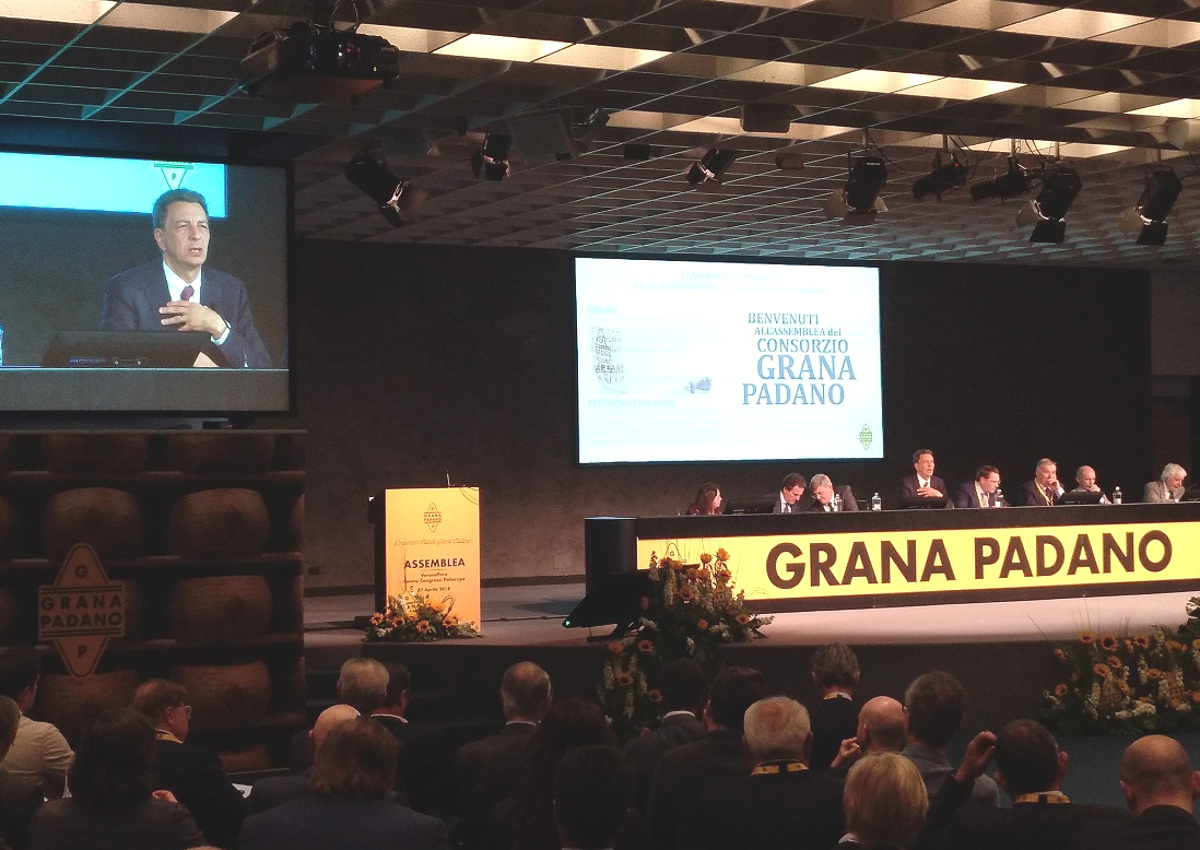
In 2017 Grana Padano cheese set a new production record of 4 million and 942,054 wheels, that is +2.4% compared to 2016. And the figures for the first quarter of 2018 are even better. In fact, they went well beyond expectations with an increase in domestic and foreign retail consumption of about 180,000 wheels, 16% more than the same period of 2017. That is what Nicola Cesare Baldrighi, president of the Consortium for the Protection of Grana Padano, said during the general meeting of Grana Padano producers held at the VeronaFiere congress centre. This positive trend is also reflected in exports, with growth compared to 2016 of 2.1%, equal to one million and 799,227 wheels sold worldwide. The most important market, in terms of consumption, was Germany with 455,878 wheels exported, followed by France (207,276) and, overseas, North America with 194,333 between the United States (145,177) and Canada.
Fighting counterfeiting
Despite the positive figures, we have to deal with a situation in the Italian hard cheese market where ‘fantasy’ brands try to assert themselves by taking advantage of regulatory gaps and aggressive commercial agreements points out Stefano Berni, director of the Consortium. To fight this phenomenon, we approved many amendments to the association’s statute that will make it more difficult for counterfeiting to establish. A decisive element of guarantee and transparency, in order to help Grana Padano distinguish from similar products. The Production Plan, the cornerstone of the Consortium since 2006, has allowed us to defend the value of the product and the increase in quantities. We must continue in this direction and we will therefore propose its approval for the next three years.
Innovation
Innovation is another essential point. We are investing resources and energy to offer an increasingly better product and to differentiate ourselves from similar products by quality – continues Baldrighi. Thanks to continuous research, we are now able to use vegetable rennet, abandoning lysozyme and identifying Grana Padano as a PDO product that is increasingly sustainable from an environmental and animal welfare point of view. A change in mentality is needed on sustainability, which could prove to be a way of differentiating those who, adapting, can continue to produce milk for Grana Padano and those who, on the other hand, will have to leave the supply chain.

